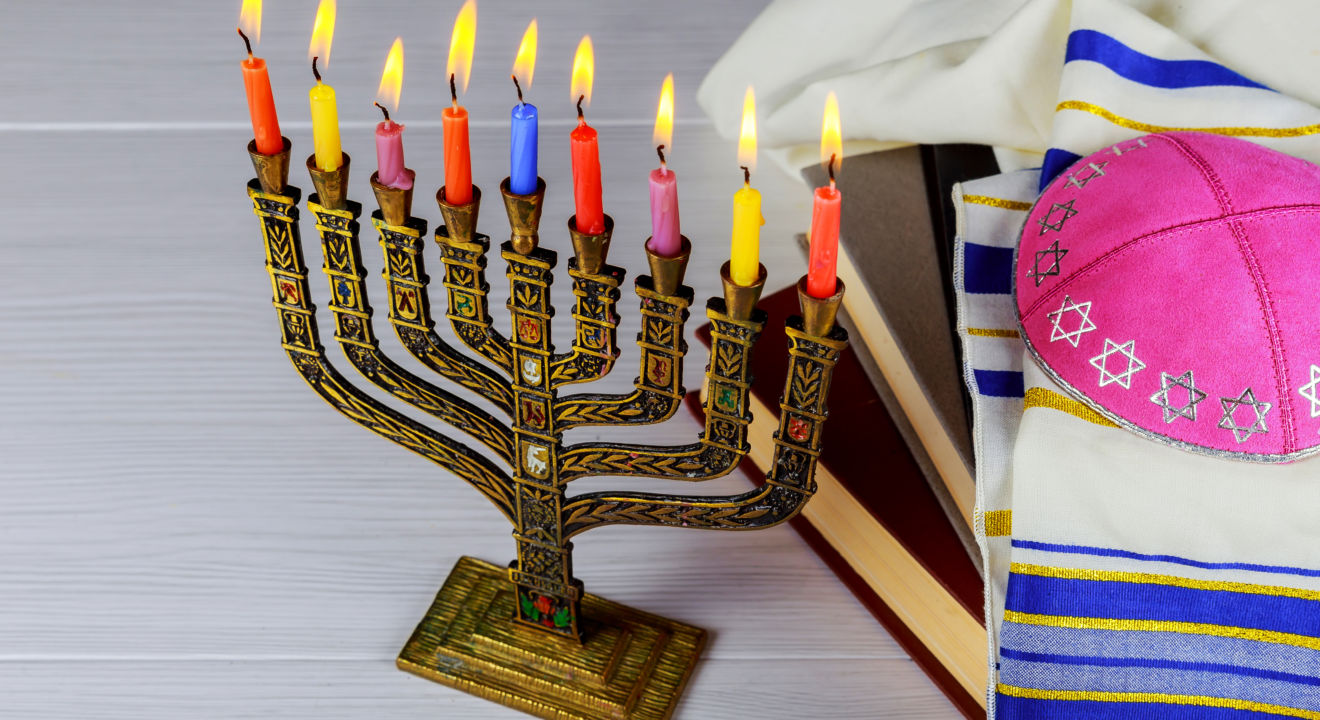Culture September 13, 2017
No, it's not the Jewish Christmas.


As a Persian Jew, celebrating Hanukkah in America has been a strange occurrence, to say the least.
In my family, Hanukkah meant we lit candles, ate chocolate, attended services and that’s about it. It wasn’t until I got to middle school when I realized how this country Americanized a Jewish holiday.
My American-Jewish friends received presents for eight days, threw parties and decorated their homes. Hanukkah was equated to Christmas, and I couldn’t wrap my head around it. To me, celebrating Hanukkah like it was Christmas was a luxury only afforded to American-Jewish people.
The reality of it is, the meaning of Hanukkah is a lot more complex than the American celebration of it.
No, it’s not a major holiday to the Jewish community. No, not every Jewish family exchanges gifts. Also, stop decorating your stores during Hanukkah if you’re not also going to do it during Passover and Yom Kippur.
And if you’re one of the many people who equate Hanukkah to Christmas, it’s not your fault. But don’t worry, you came to the right place.
Let me break down the fundamentals of this holiday.
The story of Hanukkah begins with Syrian tyrant Antiochus III. Antiochus waged a war with King Ptolemy of Egypt for the possession of the Land of Israel. He was victorious and Israel became a part of his empire.
Although he favored the Jewish people at first, he began to oppress them when he had to ask the people to give him gold to pay the Romans after losing to them in a later war. And then once he died, his son Seleucus took over the throne and only further oppressed the Jews.
Adding to the oppression coming from societal laws, the Jewish faith was facing severe blows from within the community. In the Jewish faith, it is against the ten commandments to worship any idols. So, when Jewish Hellenists welcomed Greek and Syrian customs into Israel, such as worshipping Syrian idols, turmoil among the Jewish people began.
Then when Seleucus was killed, Antiochus IV took over the empire and attempted to completely remove the individualism of the Jewish faith. So, he tried to oppress Jews who refused to assimilate to Syrian traditions by banning all Jewish laws. Jews were not allowed to follow dietary restrictions or perform circumcisions.
After a long battle between Syrians and Jews, Judah the Strong gathered an army to fight against the Syrian rule. Judah was also called “Maccabee,” which translated to “Who is like You, O God.” So, his entire army was named “the Maccabees.” A series of battles followed, but the Maccabees defeated the Syrians every time.
When the Maccabees went back to liberate Israel, they went into the temple that was seized by the Syrians and removed all Syrian idols. They found a cheap metal Menorah but only had enough oil to for one day’s worth of light. Miraculously, the oil lasted for eight days until more oil was available.
For many Jewish people, in a time of oppression, this symbolized their belief that God was still protecting them.
The belief that Hanukkah is just as important to Jews as Christmas is to Christians is false. The true history of Hanukkah is Americanized. In the 19th century, rabbis feared Jewish children would be jealous of their Christian neighbors, so they allowed Hanukkah to be a joyous holiday Jewish kids could celebrate around the same time as Christmas.
“Timing in the midst of the Christmas season offered a way [for people] to perform their Jewish commitment through the holiday’s rite and, for a moment, to resolve the ambiguity of being an American Jew,” Jewish historian Dianne Ashton wrote in her book “Hanukkah in America.”
For a lot of Jewish people, Hanukkah isn’t about the freedom of religion but rather a fight against religious reformers.
“The Maccabees were fighting for the ability to observe their own laws and the ability to coerce other Jews to observe their laws,” Albert Baumgarten, an emeritus professor of Jewish history at Bar-Ilan University in Israel, told The Washington Post. “It meant a very strong fight against the Hellenistic Jews and the establishment of what we would today call a theocratic state.”
Today’s Hanukkah traditions are spinning a dreidel, eating potato latkes, lighting a menorah, exchanging presents and eating donuts. But these traditions didn’t always exist.
Today, Latkes are the quintessential Hanukkah food. They’re pancakes made from grated potatoes mixed with matzo meal and eggs and then fried, for people who don’t already know.
But this tradition isn’t the ultimate tradition. Greek Jews eat fried fish. Cochin Jews of India eat a fried sweet cake. Syrian and Lebanese Jews eat deep-fried pancakes filled with cheese. Sephardic Jews enjoy a Spanish form of puff pastry. Lastly, Italian Jews frittelle di Chanukah, which are yeast fritters.
The exchanging of gifts on Hanukkah, on the other hand, is an American tradition. It’s the exact thing that convinces people to equate Hanukkah to Christmas. But before people were buying material presents, the Jewish community exchanged Hanukkah gelt, or chocolate coins.
The word dreidel is Yiddish for a spinning top.
During the Syrian rule over Israel, practicing Judaism was a crime punishable by death. So, children resorted to hiding in caves to learn the Torah. But when Greek patrols walked by, they hid their Torahs, took out their dreidels and pretended to play.
This carried on as a tradition during the holiday to commemorate these children.
Chanukah is spelled with the Hebrew letter chet. So, the ch isn’t pronounced like the word charter. It’s more like the word character. But, it’s a more guttural and throaty sound. Since a lot of people can’t pronounce the ch in Chanukah, they settle for Hanukkah, which is fine too.
Whether you call it Chanukah or Hanukkah, the most important part is understanding the Jewish plight and why we celebrate this holiday. Because, honestly, we’re tired of having our holiday compared to Christmas.